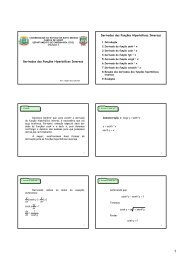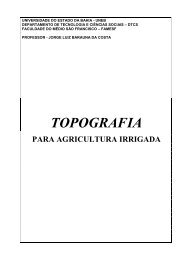Anuário Brasileiro do Arroz 2011 - Unemat
Anuário Brasileiro do Arroz 2011 - Unemat
Anuário Brasileiro do Arroz 2011 - Unemat
Create successful ePaper yourself
Turn your PDF publications into a flip-book with our unique Google optimized e-Paper software.
46<br />
It’s fiscal war!<br />
The variable tax burden makes the national product more<br />
expensive, while some measures make imported rice cheaper<br />
One of the examples most cited by<br />
the rice production chain in Rio Grande<br />
<strong>do</strong> Sul that shows the taxation discrepancies<br />
and the need for an exemption<br />
from the State Value-Added Tax (ICMS)<br />
is the State of Minas Gerais, where no<br />
taxes whatsoever are levied on rice. As<br />
things are in the South, it is always<br />
cheaper to import the cereal from the<br />
Mercosur countries, through the ports<br />
of Vitória (ES) or Santos (SP), than purchasing<br />
it from the South, with 12-percent<br />
ICMS tax levied on it at the origin.<br />
The difference lies in the fact that in<br />
Minas Gerais the volume of rice produced<br />
is 100 times smaller than in Rio<br />
Grande <strong>do</strong> Sul and, therefore, no significant<br />
volume of taxes is at stake. For<br />
the State of Espírito Santo, for example,<br />
the incidence of the ICMS of rice<br />
from Rio Grande <strong>do</strong> Sul is 7%.<br />
Among the income sources of Rio<br />
Grande <strong>do</strong> Sul, ICMS levied on rice is a<br />
major one, while Minas Gerais imports<br />
the cereal for its supply needs. For the<br />
wholesalers and retailers in that state,<br />
things get easier for them to supply<br />
their internal markets and neighboring<br />
regions. “There are States, like Goiás,<br />
where internal ICMS is zero, there<br />
is exemption for rice in the husk and<br />
there is a 130-percent tax incidence<br />
on processed rice, says André Barretto,<br />
president of the Brazilian Rice Industries’<br />
Association (Abiarroz) and of the<br />
Federation of Rice Cooperatives in Rio<br />
Grande <strong>do</strong> Sul (Fearroz).<br />
The situation is bound to get even<br />
worse for Rio Grande <strong>do</strong> Sul: the State<br />
of São Paulo has just announced zero<br />
ICMS taxes on rice, while Santa Catarina<br />
has decided to reduce to 3% its<br />
ICMS taxes on processed rice sold to<br />
other States. This is going to result<br />
into even tighter competition in the<br />
<strong>do</strong>mestic market. Furthermore, Rio<br />
Grande <strong>do</strong> Sul also bears the burden<br />
of higher transportation costs, besides<br />
fees, contributions and other costs,<br />
making its prices ever more expensive<br />
compared to the competition coming<br />
from abroad. In attempt to find a way<br />
around the problem, the state government<br />
has enacted the presumed credit<br />
mechanism, by which 3.5-percent is<br />
deducted from the ICMS tax. “With all<br />
the unfoldings involved and bureaucratic<br />
work, it means very little”, explains<br />
Barreto. But it is by no means an ideal<br />
situation.<br />
The challenge of the big commercial<br />
producers in Brazil, according to Alexandre<br />
Selk, broker with Risoy Corretora,<br />
in Pelotas (RS), consists in exporting,<br />
whether abroad or to other states<br />
in Brazil, 8.5 million of the 8.8 million<br />
tons now being harvested. Not to mention<br />
the carryover stocks, which exceed<br />
2 million tons. “This is a task that relies<br />
heavily on government support and on<br />
a change to the tax burden”, the broker<br />
acknowledges.<br />
HOPE The rice production chain<br />
in Rio Grande <strong>do</strong> Sul is acting on two<br />
fronts for tax exemption purposes: one<br />
consists in negotiating directly with<br />
members of the legislative assembly<br />
and state and federal governments and<br />
the other, through the sectorial chambers.<br />
“These are our only chances while<br />
the Tax Reform Bill is awaiting approval<br />
by Congress”, explains Barretto, president<br />
of Abiarroz and Fearroz. According<br />
to Barretto, while the deputies of the<br />
rural coalition are getting to grips with<br />
the activities of the production chain<br />
and so are other deputies committed<br />
to tax exemption measures, some practical<br />
measures are now in force.<br />
In <strong>2011</strong>, the Rio Grande <strong>do</strong> Sul State<br />
Assembly is debating the exemption<br />
from the Cooperation and Rice Defense<br />
Fee (CDO) levied on exports. The<br />
percentage value represents R$ 0.36<br />
per 50-kg sack of rice in the husk (or<br />
a 30-kg bale of processed rice). The<br />
measure relies on the support from the<br />
state government, said the president<br />
of the Rio Grande <strong>do</strong> Sul Rice Institute<br />
(Irga), Cláudio Brayer Pereira. “As<br />
the CDO is levied on rice imports, its<br />
removal from exports is a manner to<br />
stimulate and compensate for foreign<br />
sales.”, he mentions. However, there<br />
are other costs in the export process,<br />
among them the Additional Freight Fee<br />
for the Renewal of the Merchant Marine<br />
Fleet (AFRMM).<br />
The production chain suggests the<br />
elimination of the fees for the Social<br />
Integration Program (PIS), the Contribution<br />
to Social Security Financing (Cofins)<br />
and the Rural Workers’ Assistance<br />
Fund (Funrural), besides the AFRMM,<br />
among others, which are still levied on<br />
some segments and operations of the<br />
sector. For now, only a few companies<br />
– none of the rice sector – were granted,<br />
by court ruling, an exemption from<br />
paying the Funrural fee.<br />
In Rio Grande <strong>do</strong> Sul, the resumption<br />
of the activities of the Rice Sectorial<br />
Chamber, which had been deactivated<br />
by the sate government five<br />
years ago, gave rise to a thematic<br />
group responsible for coming up with<br />
alternatives and exemption from taxes<br />
levied on the sector. At the Rice Sectorial<br />
Chamber of the Nationwide Rice<br />
Production Chain, the issue is listed on<br />
the strategic agenda and lots of claims<br />
on the subject are being debated. “We<br />
hope the government will take them<br />
into consideration”, Barreto ponders.


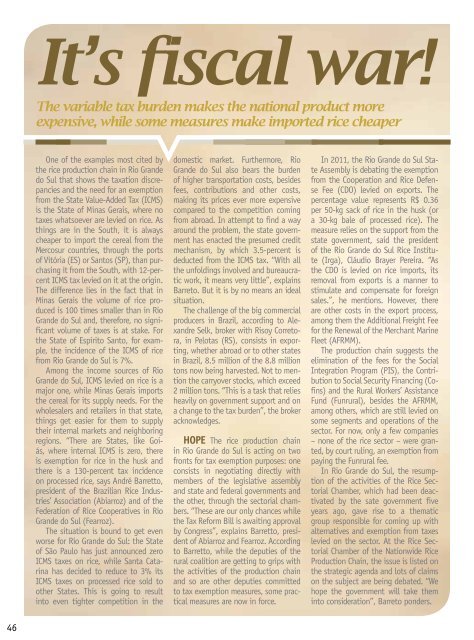
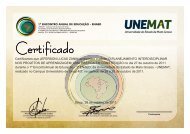
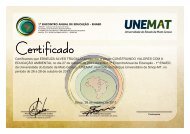
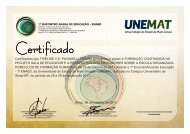
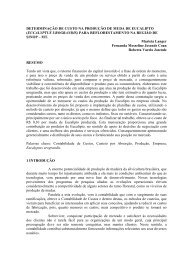
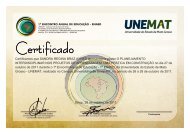
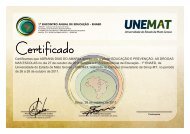
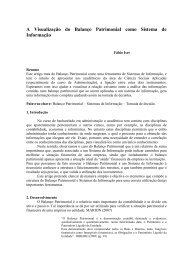
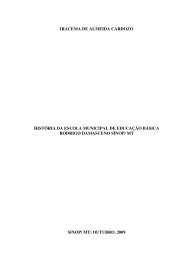
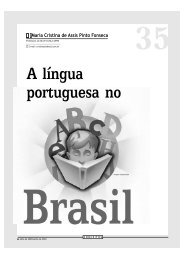
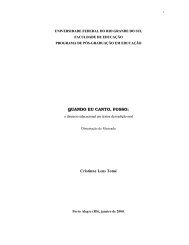
![Aula 31 - Funções Hiperbólicas [Modo de Compatibilidade] - Unemat](https://img.yumpu.com/14334654/1/184x260/aula-31-funcoes-hiperbolicas-modo-de-compatibilidade-unemat.jpg?quality=85)
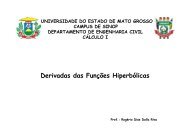
![Aula 31 - Funções Hiperbólicas [Modo de Compatibilidade] - Unemat](https://img.yumpu.com/14332146/1/190x135/aula-31-funcoes-hiperbolicas-modo-de-compatibilidade-unemat.jpg?quality=85)
